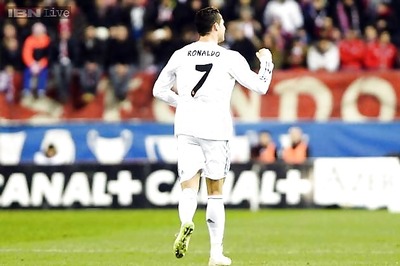
views
The Khan triumvirate - Aamir Khan, Salman Khan and Shah Rukh Khan - have been ruling the roost in Bollywood from more than last two decades. While in the same period, other stars such as Akshay Kumar, Hrithik Roshan and Ajay Devgn carved out a niche among mass audience by delivering some thunderous blockbusters, the Khans remain indisputable frontrunners and outshone their contemporaries in terms of consistency, longevity and fan following.
It has been a raging debate among cinegoers and movie scribes about which Khan wields the maximum clout and sway. A close look at their careers and personalities clearly reveal that they all have had their share of crests and troughs which defined their career graph.
Aamir started his career as a lead actor with 'Qayamat Se Qayamat Tak' in 1988. The female actor in the lead was Juhi Chawla and the director at the helm was his cousin Mansoor Khan who was making his debut. The movie went on to become a superhit and propelled its lead actors to the realms of fame. But the inexperienced actor signed a string of movies with patchy screenplay - 'Love Love Love', 'Afsana Pyar Ka', 'Tum Mere Ho', 'Awwal Number' - all of which tanked at the box-office.
Aamir learned his lesson pretty swiftly and started being extremely discreet and thoughtful about the selection of movies. He turned over a new leaf with the stupendous success of 'Dil', which was released on the same day as 'Ghayal', and went on to become the highest grossing movie of 1990.
Meanwhile, Salman had whipped out 'Maine Pyar Kiya' in 1989 to embark on what would turn out to be a remarkable career. Salman's entourage of hit movies continued in 1990 and 1991 as he unfurled hits like 'Sanam Bewafa', 'Patthar Ke Phool' and 'Saajan' on the trot.
At that time, Amitabh Bachchan's career as a lead actor was on the wane, and Aamir and Salman were touted as the next superstars. SRK joined the fray in 1992 with 'Deewana' and cemented his place by delivering hits like 'Baazigar' and 'Darr' in 1993. Interesting Baazigar was refused by Salman while Aamir snubbed 'Darr' after an altercation with Yash Chopra.
During 90s, Aamir emerged as most consistent and dependable - if not bankable - star. He exhibited creditable gravitas and nous while choosing the movies and preferred to work on one movie at a time while most his contemporaries were working in dozens simultaneously. 'Jo Jeeta Wohi Sikander' (1992) and 'Andaz Apna Apna' (1994) didn't set the box-office on fire but later gained cult status.
'Hum Hain Rahi Pyar Ke' (1993) and 'Rangeela' (1995) did well among class audience in metros were not universal success. In fact, the only movie of Aamir which proved blockbuster in the 90s was 'Raja Hindustani' (1996).
Despite the moderate success of his movies, Aamir's movies unfailingly notched up critical acclaim and the sobriquet 'Mr Perfectionist' was endowed upon him for his unparalleled commitment and devotion to his craft. His name became synonymous with quality cinema and he further enhanced his status with movies like Ghulam (1998) and Sarfarosh (1999).
However, his uncompromising and upright stand resulted in his tiff with bigwigs like Yash Chopra, Mahesh Bhatt and Ram Gopal Varma. He shunned award functions after 1995 casting aspersions on their credibility.
His contemporaries Salman and Shah Rukh were well ahead of him in terms of box-office collections and universal appeal during the 90s but neither of them could hold a candle as far as acting chops and intensity are concerned.
Salman was the biggest draw in the decade as he churned out maximum hits and enjoyed equal popularity among all sections of the society across the globe. 'Hum Aapke Hain Kaun', 'Judwa', 'Hum Dil De Chuke Sanam', 'Biwi No. 1', 'Jab Pyar Kiya To Darna Kya' and 'Karan Arjun' made pots of money from Bihar to Bombay.
But he copped equal number of forgettable and crappy movies which neutralised his success. Despite having the biggest fan base, Salman didn't fulfill his potential and his glacial equation with the media diluted his standing.
Shah Rukh too was involved in some humungous hits - 'Dilwale Dulhaniya Le Jayenge', 'Dil To Paagal Hai' and 'Kuch Kuch Hota Hai' - and a slew of box-office turkeys like 'Chahat', 'Zamana Deewana', 'Dil Se', 'Chahat' and 'Koyla'. He scored over Salman and Aamir by pandering to media. The media loved him and proclaimed him as 'King Khan'.
He scooped awards almost every year. Throughout the decade, he remained media's blue-eyed boy who painted him as the biggest superstar of Bollywood. To his credit, he was, and still remains, Bollywood's most popular actor among overseas audience.
The critical and commercial debacle of 'Mann' (1999) and 'Mela' (2000) gave Aamir some food for thought, and the new millenium saw him more focused and skillful with a revamped business acumen. He produced 'Lagaan' (2001), much against the advice of many of his friends including Javed Akhtar, and reaped rich dividends for his astounding courage and vision.
The movie was directed by Ashitosh Govarikar, who earlier had an unenviable record as a director, and released on the same day as another blockbuster 'Gadar'. The clash of Aamir and Sunny Deol, after 'Dil' and 'Ghayal', again turned fruitful for the industry as both the movies became big hits.
'Lagaan' was later nominated in the best foreign language movie category for the Academy Awards - third Indian movie after 'Mother India' and 'Salam Bombay' - but missed out. In the same year, he enacted the diametrically different role in 'Dil Chahta Hai' and mesmerized the audience with another superlative performance. Both the movies are regarded as the landmark in Indian cinema.
After a hiatus of five years, Aamir returned with 'Mangal Pandey' in 2005 which wasn't as successful as expected but 2006 proved another propitious year for the Ace Khan as he unleashed an another remarkable movie like 'Rang De Basanti'. 'Fanna' was released later in the year and proved a mega hit. In the next year, Aamir decided to don the hat of the director and rolled out a movie which not only set the cash registers at the cinema halls rolling but also brought about a radical change in the outlook of the society towards children. The movie was 'Taare Zameen Par' which melt the sternest of hearts and won him lavish laurels.
After conjuring up four top-shelf movies in the decade - 'Lagaan', 'Dil Chahta Hai', 'Rang De Basanti' and 'Taare Zameen Par' - Aamir decided to take on his fiercest rival SRK in 2008. The latter had been taking digs at Aamir, in the garb of jokes, at award functions ever since mid-90s but the courteous Aamir had kept mum all through. He finally let loose and revealed in his blog that he has a dog named Shah Rukh who licks his feet as he feeds biscuits to it. It created a stir and took SRK by surprise.
Aamir went step ahead when his movie 'Ghajini' was due to release shortly after 'Rab Ne Bana Ji Jodi'. He deployed guerrilla marketing to the tee and beat SRK at his own game. 'Ghajini' outshone 'Rab Ne Bana Ji Jodi' by a huge margin clocking up 115 crore and Aamir was crowned as the box-office king for the first time. He lived up to the expectation by another terrific oeuvre in 2009. Three idiots opened to overwhelmingly positive response from the audience and critics. It garnered more than 200 crore and still remains the highest grossing movie in the history of the Indian cinema.
Aamir, who didn't match SRK and Salman at the box-office in the 90s, took the centre stage in the next decade to vindicate that he could be most bankable star along with the most revered and accomplished one. He combined his craft with charisma, courage with canny subterfuge, gumption with gusto, vision with versatility and wisdom with wit to give his rivals a taste of their own medicine. He became extremely media savvy and didn't hesitate in indulging in war of words with SRK. His methodical approach to marketing set new standards in Bollywood.
What sets him apart from his contemporaries is the fact that he chose unconventional subjects, played radical characters and still managed to dish out commercially successful movies which are also regarded as classics. Consider movies like 'Rangeela', 'Sarfarosh', 'Lagaan', 'Dil Chahta', 'Rang De Basanti', 'Taare Zameer Par' and 'Three Idiots'; every movie and role are poles apart from each other but Aamir managed to pull them off with arresting aplomb and elan. Versatility is certainly his watchword.
When SRK tried his hand to break his lover boy image in 'Asoka' (2001) and 'Paheli' (2005), both movies tumbled unceremoniously at the ticket window. The prominent force behind Aamir's success is uncanny, and immaculate sense of script. His success ratio is higher than not only his contemporaries but also the legends like Amitabh Bachchan, Raj Kapoor, Dilip Kumar and Rajesh Khanna.
In the last 13 years, all of his movies have minted money and five of them, as mentioned above, as deemed as classics. He's the only actor in the history of Bollywood whose list of landmark movies is heftier than than this list of underwhelming movies. His obsession to his craft, which brought him many detractors in 90s, has won him millions of admirers all over the world.
Not just as a actor, his stamp of genius is ostensible even in the movies he direct and produce. All the movies produced by him - 'Lagaan', 'Jaane Tu Yaa Jane Na', 'Delhi Belly' and 'Peepli Live' - were profitable ventures and were appreciated. He once jokingly said that he refused to do a cameo on 'Om Shanti Om' when Farah Khan approached him as he couldn't possibly demand a script for a one minute role.
He said in the same breath that if he doesn't like any script, he won't even do a miss and blink appearance in the movie as he has a responsibility towards his fans who repose their trust and faith in him.. He's, therefore, the sole actor whose association with any project in any capacity is the testimony of excellence of the particular enterprise.
Salman once asserted, tongue firmly in cheek, that he doesn't let Aamir touch him as he would turn into gold. He also credited his outstanding recent success to Aamir claiming that he took the leaf out of his friend's book to commit to one, at most two, movies at a time so that all the energies and focus are diverted in one direction.
Despite Salman delivering five blockbusters in last couple of years, Aamir's stature remain unaffected. Both the actors - Aamir and Salman - have formed a mutual admiration society heaping encomium on each other and promoting each others movies.
It's heartening to see how he (Aamir) enjoys the success of his contemporaries like Salman, Akshay and Hrithik. He has refrained from spiteful shenanigans and malicious machinations, which are part of the show business, for the better part of his career. Being righteous is a virtue he upholds with unimpeachable integrity.
####



















Comments
0 comment